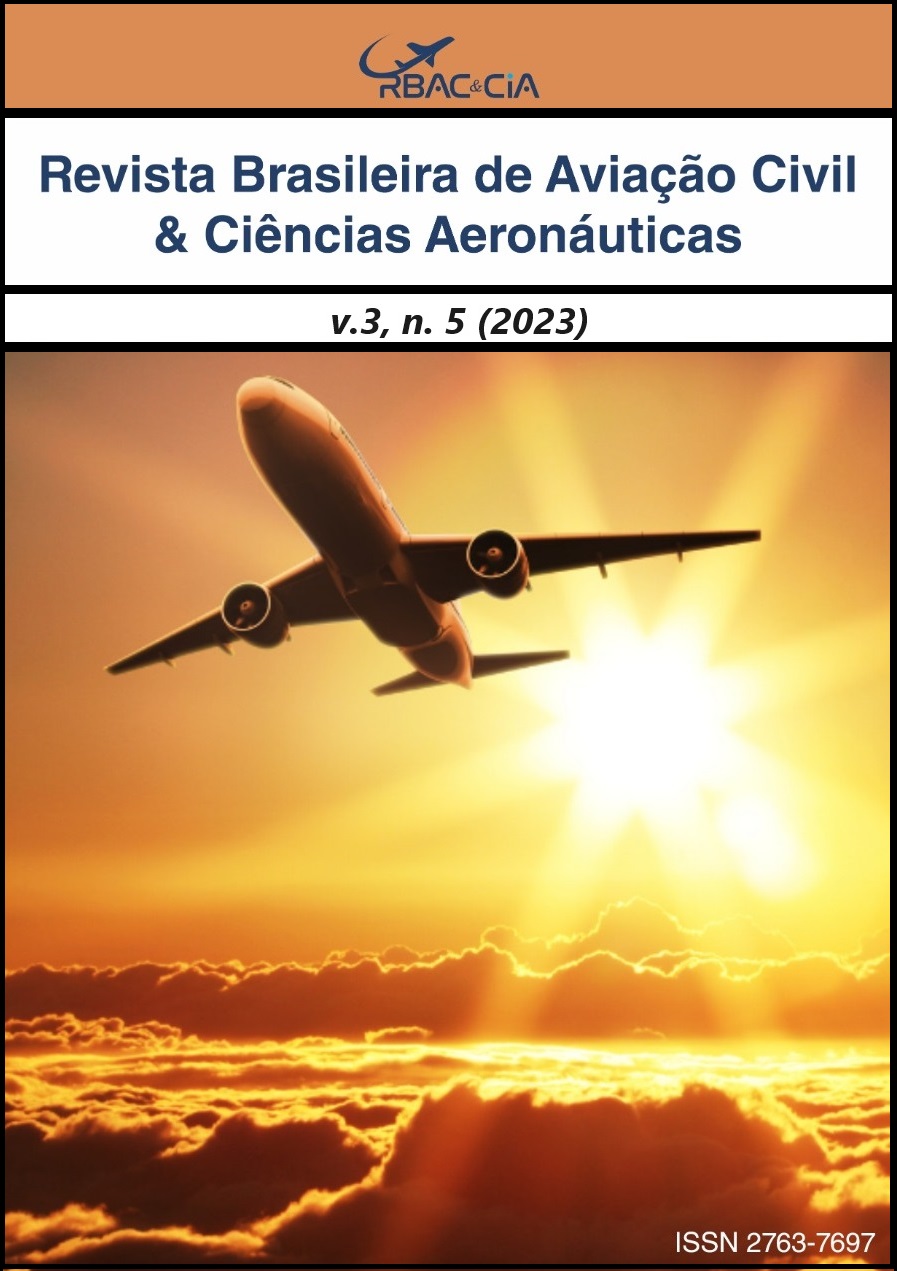OS BIOCOMBUSTÍVEIS E A INOVAÇÃO DE RUPTURA NA AVIAÇÃO CIVIL THE BIOFUELS AND THE DISRUPTIVE INNOVATION IN THE CIVIL AVIATION
Conteúdo do artigo principal
Resumo
O tema desta pesquisa aborda a inovação de ruptura quanto ao uso dos biocombustíveis na aviação civil brasileira, sua eficiência e aplicação no mercado globalizado, a fim de mitigar as emissões de Gases de Efeito Estufa (GEE) emitidos pelos motores a reação das aeronaves, por intermédio da queima do combustível fóssil. O objetivo é entender o papel dos biocombustíveis na redução das emissões de gases poluentes, e se estes podem ser considerados uma inovação de ruptura, ao substituir o Querosene de Aviação (QAV-1) no âmbito da aviação civil. A metodologia utilizada foi de abordagem qualitativa, de natureza básica, com objetivos exploratórios, com procedimentos bibliográficos e documentais. Os resultados da pesquisa indicam que o bioquerosene de aviação se apresenta como uma alternativa sustentável e viável, uma vez que suas características são semelhantes ao QAV-1. Vale ressaltar, ainda, que os biocombustíveis de origem lignocelulósicas são alternativas mais rápidas e de fácil implementação no setor da aviação civil, já que apresentam custo baixo, alta produtividade e utilizam resíduos vegetais ou animais. No entanto, por ser uma tecnologia nova, ainda não se tem preços competitivos quando comparado ao QAV-1. Conclui-se que a promoção da sustentabilidade global dos biocombustíveis para aviação requer soluções integradas que considerem a redução do impacto socioambiental, a segurança alimentar e a viabilidade econômica da produção em escala comercial.
ABSTRACT
The theme of this research addresses disruptive innovation in the use of biofuels in Brazilian civil aviation, its capacity for innovation, efficiency, and application in the global market, in order to mitigate greenhouse gas emissions from aircraft jet engines through the combustion of fossil fuels. The goal is to understand the role of biofuels in reducing emissions of pollutants and whether they can be considered a disruptive innovation by replacing Aviation Kerosene (Jet A-1) in the field of civil aeronautics. The methodology used was a qualitative approach, of a basic nature, with exploratory objectives, using bibliographical and documentary procedures. The research results indicate that aviation bio-kerosene appears as a sustainable and viable alternative, given that its characteristics are similar to Jet A-1, with a low freezing point, high volatility, and high calorific value. It is worth noting that, in addition, lignocellulosic biofuels are faster and more easily implementable alternatives in the civil aviation sector, as they have low cost, high productivity, and use plant or animal residues. However, being a new technology, competitive prices have not yet been achieved compared to Jet A-1. It is concluded that the promotion of global sustainability for aviation biofuels requires integrated solutions that consider the reduction of socio-environmental impact, food security, and the economic viability of commercial-scale production.
Keywords: Civil Aviation. Aviation Biofuels. Sustainability. Innovation.
Downloads
Detalhes do artigo

Este trabalho está licenciado sob uma licença Creative Commons Attribution 4.0 International License.
